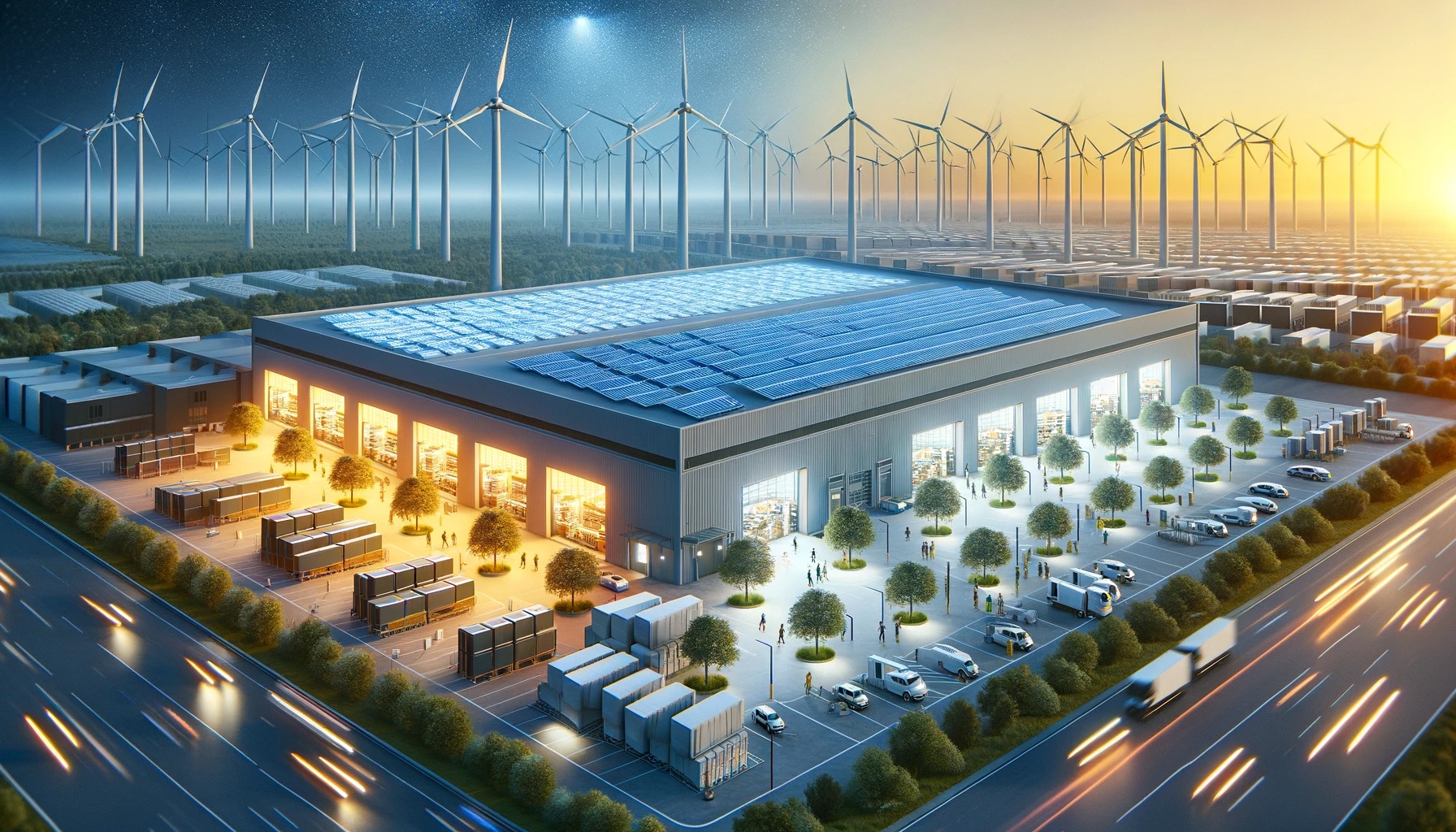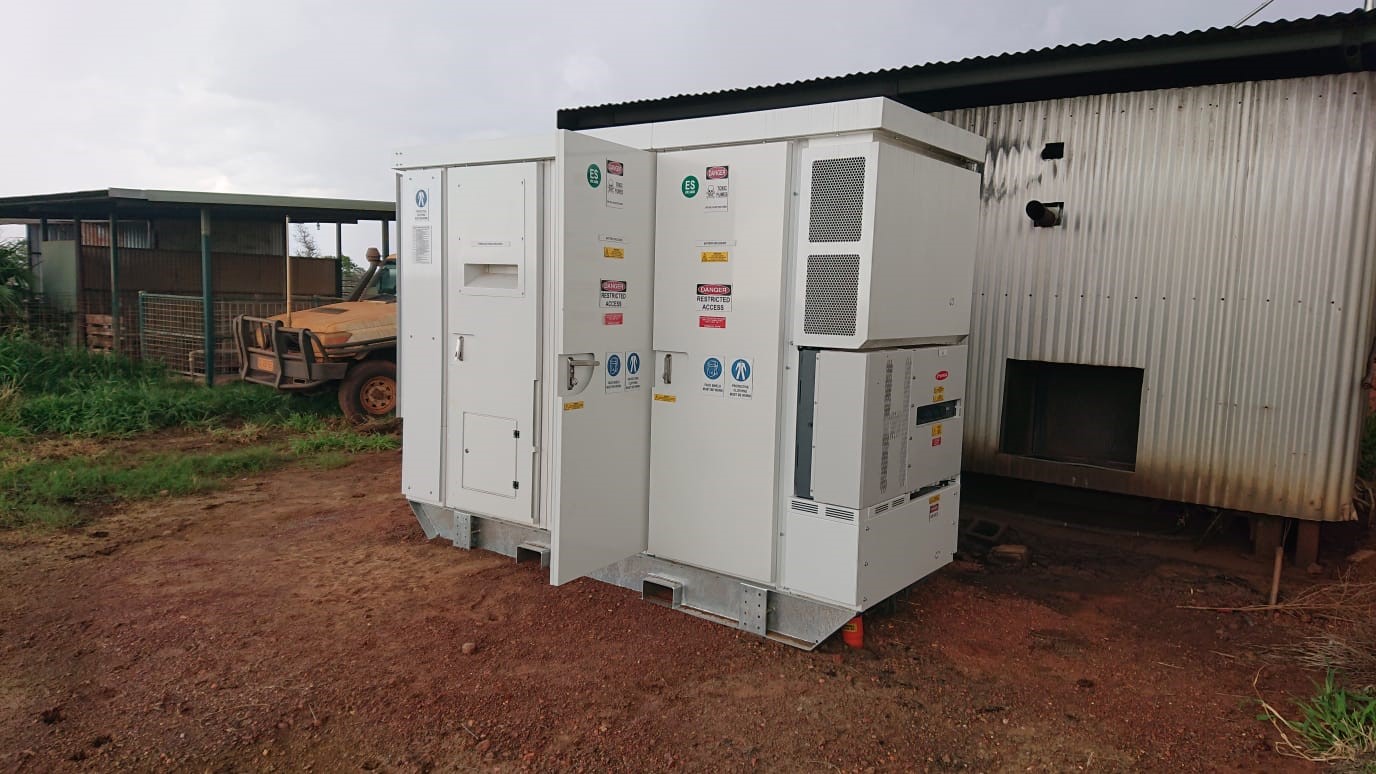Your business and Energy: Is it profitable for my business to produce and store electricity?
Producing and storing energy is becoming increasingly common in the industry, but it can also be profitable for smaller businesses with diverse profiles.
To determine whether it makes sense for a business owner to store some of the energy they produce, it will be necessary to conduct a study of their profile and needs.
“With electricity prices becoming more dependent on consumption peaks, the major challenge will be to smooth out one’s consumption, and CE+T’s production and storage management solutions enable this,” explains Marc Van Goidsenhoven, Sales Manager at CE+T.
Take control of your production!
Wind and photovoltaic panels, for example, are highly complementary since they produce energy at different times. The choice of production methods and the sizing of the installation will depend on the company’s needs, budget, and available space.

Investing in electricity storage allows you to take control of your production, use it on-site and at the right time, and potentially inject it back into the grid when demand is high and resale prices are favorable.
The return on investment typically ranges from 4 to 9 years and depends on various factors such as:
- The company’s consumption
- The possibility of benefiting from incentives (tax advantages or subsidies)
- Future tariffs (recent price volatility and geopolitical context influence market stability).
In some states in the United States, for example, an installation can become profitable after 2 or 3 years. Regardless of the exact timeframe for profitability, renewable energy is an investment that allows the company to stabilize its energy costs for 10 to 15 years.
How much would a blackout cost your business?
Beyond the simple return on investment, producing and storing your own energy allows you to avoid the possibility of facing a blackout one day. “The risk of a power outage represents a significant cost for the company, sometimes difficult to quantify. Having an Uninterruptible Power Supply (UPS) system is therefore a guarantee of a continuous power supply,” explains Damien Ernst, a researcher at the Faculty of Applied Sciences of ULiège.
The battery market is beginning to open up and democratize
Batteries currently have an average lifespan of 10 to 15 years, and their replacement should also be planned and considered in a profitability plan.
In the future, the development of new batteries that operate on sodium instead of lithium, for example, will be almost entirely recyclable and will change the landscape, allowing for more eco-friendly choices.
Electric vehicle batteries that begin to show signs of weakness for automotive use can also be repurposed as stationary batteries.
These possibilities suggest a democratization and better recycling pathways for batteries.
Advantages of producing and storing electricity
- Reduce your energy bill
- Protect yourself from potential network outages
- Increase your autonomy
- Comply with European regulations regarding carbon footprint
- Be environmentally conscious
- Benefit from a positive image with your customers and the general public
Illustrating with a Real-Life Case Study
A Northern Territory Cattle Station, nestled within Australia’s expansive Northern Territory, grapples with the intricate task of powering a remote agricultural expanse spanning over 10,000 square kilometers.
Traditional grid connection proves unattainable due to isolation, and sole reliance on gensets poses fiscal and environmental challenges. To surmount this hurdle, an innovative AC Coupling solution was embraced —a hybrid amalgamation of renewable energy sources, specifically photovoltaic panels, alongside battery storage, complemented by a smaller genset as a contingency.

Orchestrated by CD Power using CE+T’s Sierra and Inview systems, the AC Coupling mechanism integrates PV panels on the AC side, maximizing local energy utilization and fostering a resilient microgrid infrastructure. This pioneering approach not only ensures sustainable energy utilization but also facilitates a seamless transition between energy sources, securing reliable power for the Cattle Station while markedly reducing its environmental impact.
Thought of the month : Renewable energy and storage systems to be an active consumer
“Sometimes it’s difficult for a company to precisely quantify what a power outage would cost them. Storing energy is an insurance policy that allows them to avoid this risk. With a storage system, you become an active participant, whereas by simply consuming, you remain a spectator,” says Gilles Geron, Product Management Team Leader at CE+T Power.